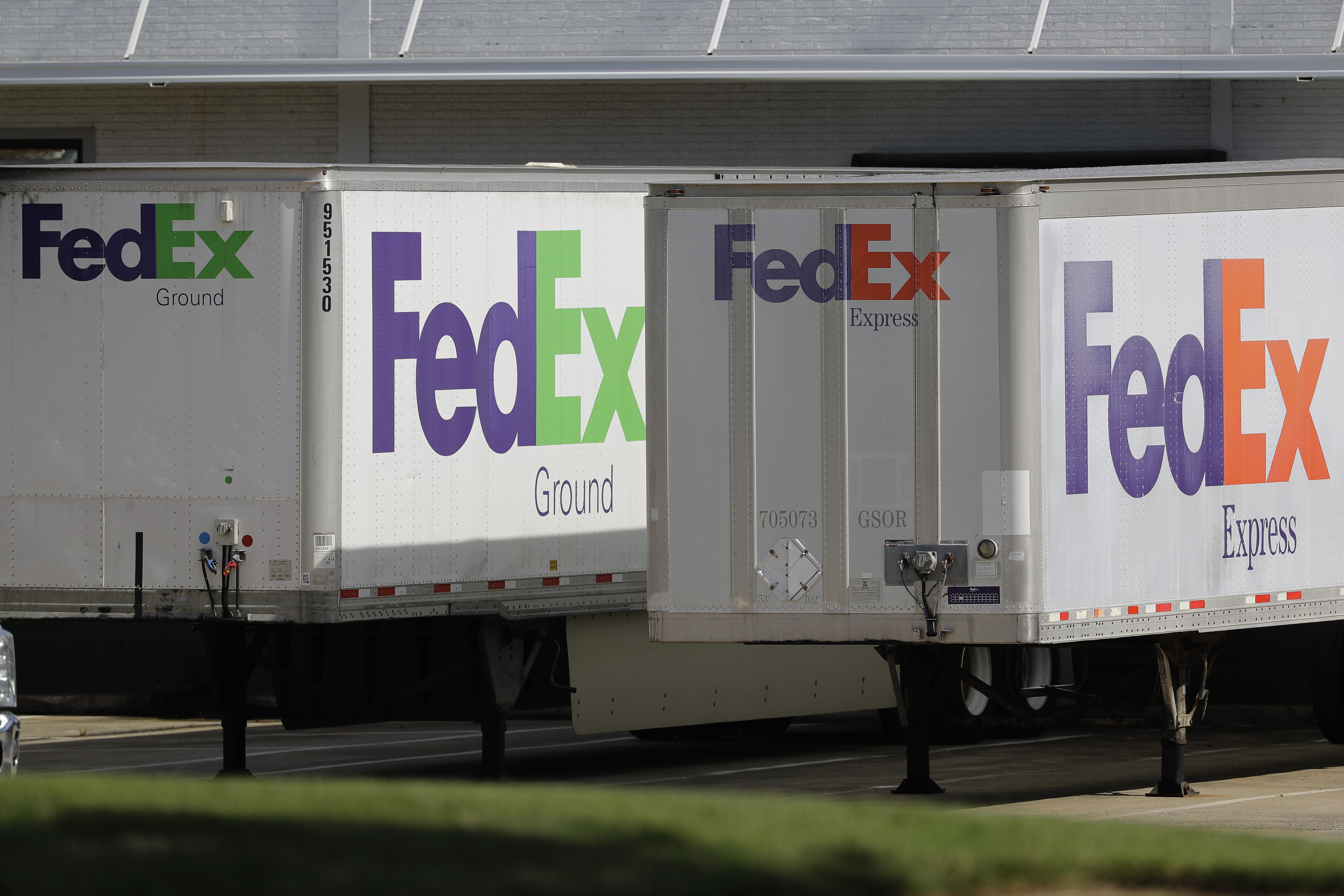
FedEx trailers are shown at a loading dock in Greensboro, North Carolina, on Tuesday, June 25, 2019. – Sales from the electronic commerce (e-commerce) market and semiconductors continue to drive up demands in the logistics operation, according FedEx Philippines managing director Maribeth Espinosa. (Associated Press Photo/Chuck Burton)
Sales from the electronic commerce (e-commerce) market and semiconductors continue to drive up demands in the logistics operation.
“We see that e-commerce is one that is a rapidly changing environment. So we’re adapting to the needs of e-commerce. Semiconductors still play a role because before you get into the internet you will need the computers and laptops that they produces,” FedEx Philippines managing director Maribeth Espinosa told reporters on Friday.
As the holiday season approaches, Espinosa indicated that seasonal trends are emerging, especially in the shipment of apparel and other goods.
“Some industries will be on a very high trend like apparels and dresses for e-commerce business. Semiconductors may be a slower growing trade but still getting there,” Espinosa said.
The country’s e-commerce market is projected to achieve a compound annual growth rate of 13.2 percent from 2024 to 2028, reaching P2.2 trillion, or $39.5 billion, by 2028, according to Globaldata.
With the growing consumer demands, FedEx shared that they are planning to double its facility. To facilitate its expansion, it signed a contract with Luzon International Premiere Airport Development Corporation, the operator of Clark International Airport.
“We want to also continue to embrace technological advancement and innovation because this is important for our customers, especially those that are in the e-commerce industries. And we continue to look forward to increasing our capacity, expanding because we also introduce the freight business in our category offerings for FedEx.,” Espinosa said.
READ: Logistics industry sees robust growth in 2024
Over the years, FedEx Philippines has established two facilities in the country: a $1.5 million investment in BGC for IT software development in Taguig, and a regional software development center focused on Asia-Pacific solutions.
For Espinosa, the Philippines remains to be an important market for the logistics company, as it aims to connect Filipino businesses globally.
“That’s our commitment because this is an important market. We have full confidence in the Filipino people and the Filipino business,” she said.
READ: Philippines to launch workshops on semiconductor industry
“Imagine the ingenuity that we see in our products. So we know that there is capacity and room to grow and we’ve seen that and we’re trying to help those micro, small and medium enterprises grow and we are seeing them growing so we know that there is business coming up for us,” she added.
In 2021, FedEx launched a 7,000-square-meter facility at Clark International Airport to meet the increasing logistics demands in the country, largely fueled by the rise of e-commerce and freight services.